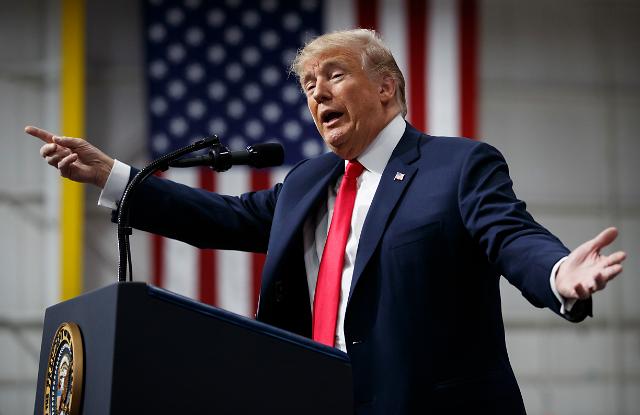
[AP / Yonhap]
SEOUL -- Seoul and Washington announced their agreement on a revised free trade accord that reflected President Donald Trump's drive to pry open the South Korean market wider to American cars and products.
The revised agreement addresses issues related to investment, tariffs, trade in automobiles and trade remedies, the two countries said in a joint statement, adding progress was also made in pharmaceuticals, customs and textiles. "The nations have agreed on terms for a country exemption for South Korea from the tariff imposed on steel imports," it said.
Trade officials in Seoul said that South Korea steel products shipped under an annual import quota would not be slapped with a 25 percent tariff. South Korea would allow imports of 50,000 cars annually for each American company and ease emission standards for five years from 2021. The United States would maintain a 25 percent tariff on South Korean pickup trucks by 2041.
South Korea's trade minister Kim Hyun-chong said earlier that the agreement would create a "stable" business environment for South Korean exporters at a time when uncertainties are growing due to trade disputes between Beijing and Washington. The United States is South Korea's second-largest trading partner after China.
In a tweet, Trump hailed the revised accord as a "great deal" for American and South Korean workers. "Let's now focus on our important security relationship." White House press secretary Sarah Sanders also described it as "a big deal" for American parts manufacturers and pharmaceutical companies. "And ultimately, it's a big deal and a major win for American workers and American businesses," she said.
Separately, Washington and Seoul are locked in negotiations on an accord to prevent "competitive" currency devaluation, U.S. officials said, adding the accord would require South Korea to increase transparency in its foreign exchange policy.
Seoul has denied any official interference in the foreign exchange market. Washington has accused some countries of devaluing their currencies deliberately for trade advantages. Washington has kept South Korea on its "monitoring" list. The U.S. Treasury Department is set to release a currency report next month.
Copyright ⓒ Aju Press All rights reserved.



![[Korea-Japan Ties] South Korea weighs FTA with Japan amid US protectionism](https://image.ajunews.com/images/site/img/ajunews/list_noimg.jpg)